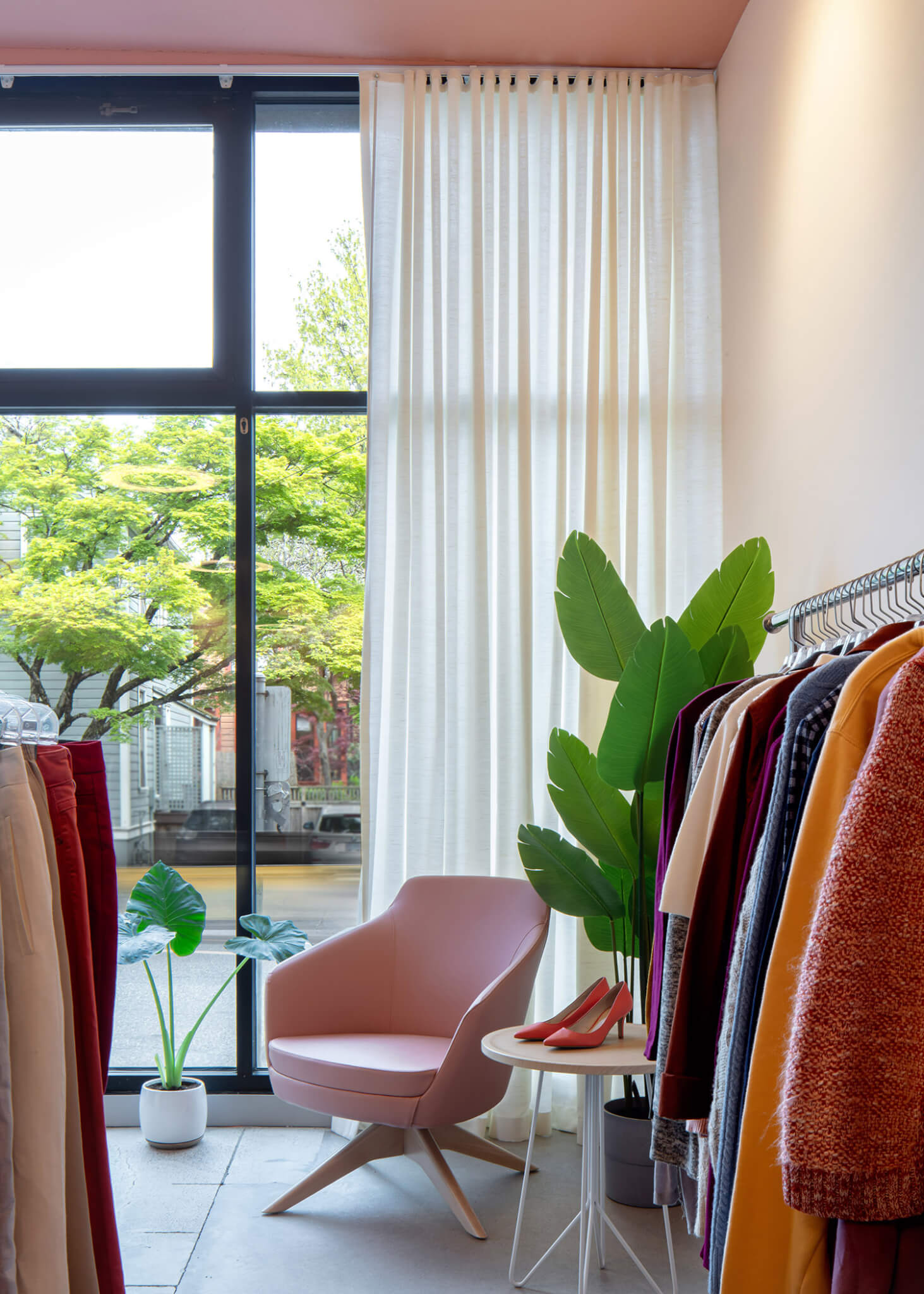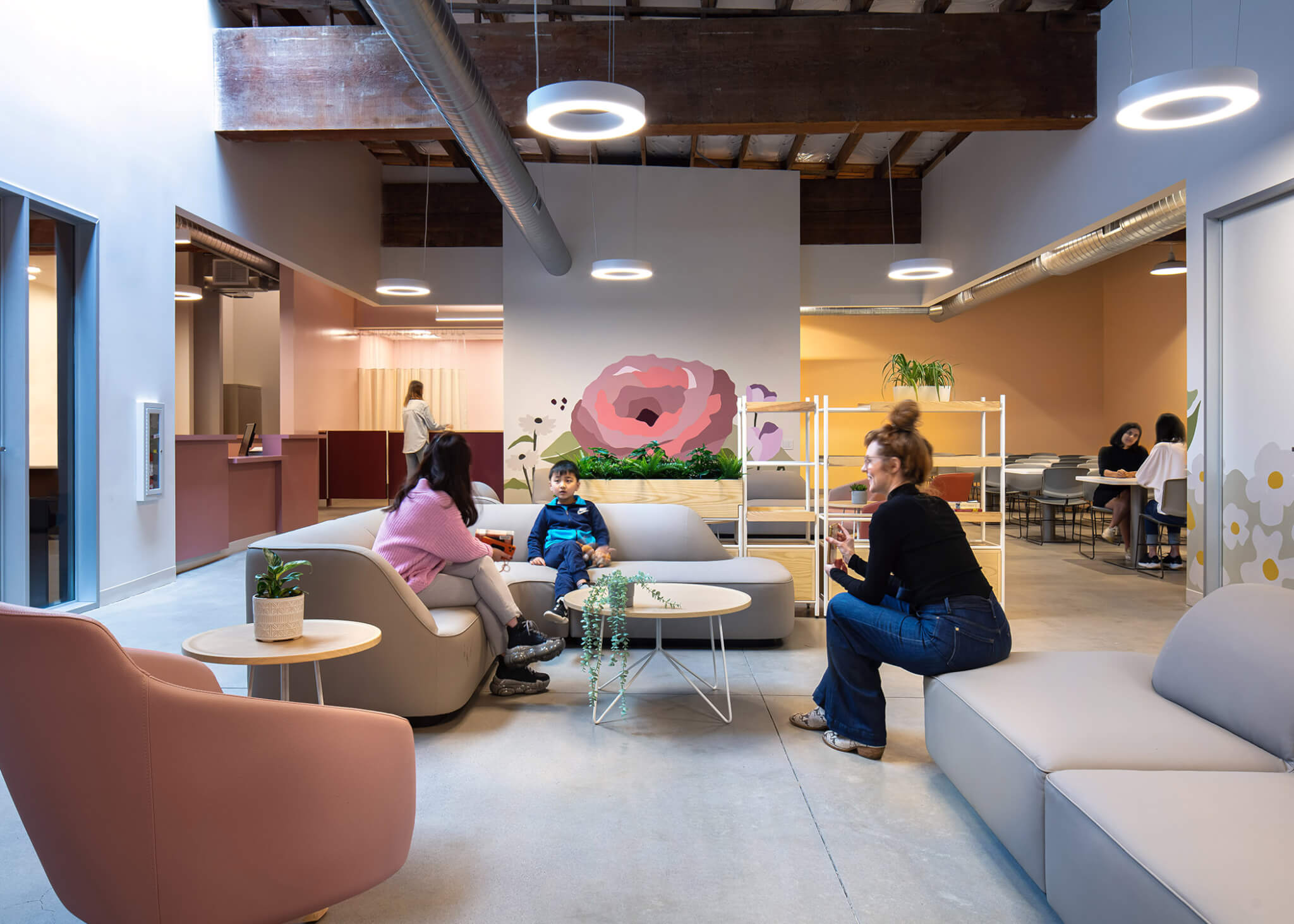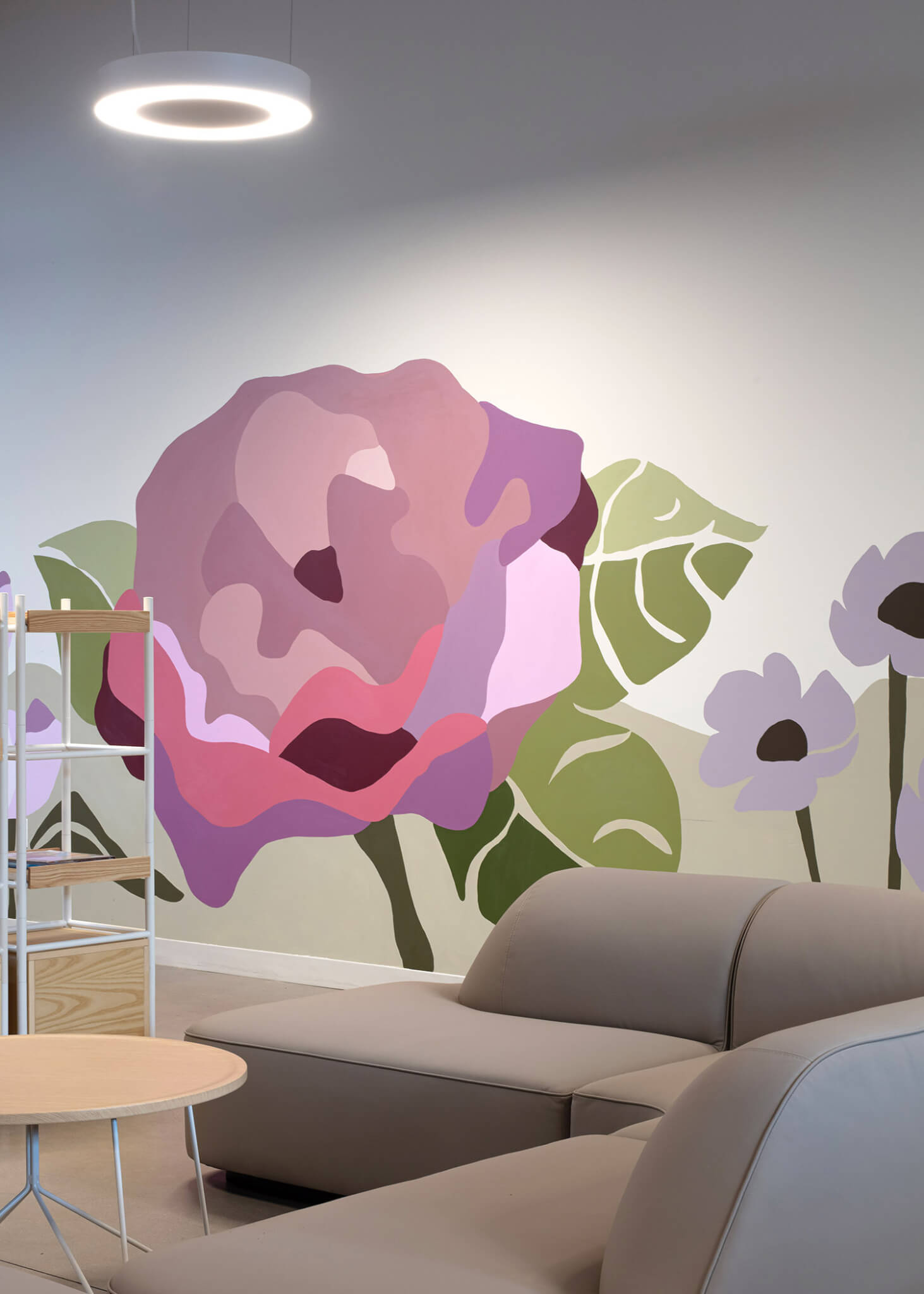Gensler Portland—one of three offices that comprise the global design firm’s Cascadia regional division along with Seattle and Vancouver, B.C.—has unveiled its interior refresh of Rose Haven, a low-barrier day shelter and community center dedicated to supporting women, children, and gender-diverse individuals experiencing homelessness, abuse, and other turbulent life events. Located in Northwest Portland, the facility provides a critical—and singular—service for the city’s most vulnerable residents.
As noted by Gensler, Oregon has the second-highest rate of homelessness in the country, with 35 out of every 10,000 residents in the state lacking safe, permanent shelter, making organizations like Rose Haven all the more critical.
With the aim to “create a space that embodies the emotional connection users have to Rose Haven,” Gensler Portland took on the project pro-bono, which in addition to the interior design services for the nonprofit’s new 10,500-square-foot home on NW Glisan Street—a space three times larger than the 25-year-old organization’s previous facility in the basement of a nearby church—also entailed a brand identity revamp, including a new logo design, typography, and trauma-informed color palette. The new logo celebrates the Rose—a legacy symbol of the organization—by representing Rose Haven’s diverse community coming together with each petal,” Gensler explained in a project overview.


Featuring exposed wood beams, ample natural light, and furnishings that promote a warm, safe, and open atmosphere, the space itself includes an intake and reception area, activity rooms, community dining room, guest services area, prep-kitchen and pantry, wellness area with showers, laundry and medic room, and a “boutique-inspired area” where guests can select clothing donated to Rose Haven. Joining the guest-facing spaces are administrative offices and workspaces for the nonprofit’s team of directors, advocates, and, last but not least, volunteers.
Because a Rose City nonprofit just wouldn’t be complete without a prominent floral motif, the design team created an 82-foot botanic mural that flanks the shelter’s main service areas and incorporates 35 colors that, per Gensler, “evoke a sense of calm and wellbeing.” Using a paint-by-numbers approach, Rose Haven’s guests, volunteers, and donors were invited to fill in the large blossoming artwork.


While input from the community that a particular project sets out to serve is an invaluable part of any design process, the engagement phase at Rose Haven was particularly salient with the needs of the facility’s core users—its guests, volunteers, and staff—taking front and center.
“This project was our first experience in creating a space that allowed for our guests and staff to provide input into color, flow, lighting and all the aspects important to supporting their physical and emotional safety,” said Katie O’Brien, executive director of Rose Haven, in a statement. “We are witnessing firsthand how all these factors have made for a calmer, yet uplifting, environment that promotes dignity. Trauma informed design works.”


Kicking off the engagement process, the design team facilitated visioning sessions for the Rose Haven team to in order to “provide the framework they could leverage to conduct a visioning session with the women and children they serve,” Gensler Portland detailed. “This focused on decision-making, providing an inclusive experience to ensure all voices were heard, engaging with diverse viewpoints, and community outreach.”
“The opportunity to work closely with Rose Haven’s community and learn about trauma-informed design in real time was an invaluable experience for our team,” added Natasha Field-Rahman, design manager at Gensler Portland.
The new Rose Haven space first opened to guests in early March and was made possible by a $3 million fundraising campaign.


